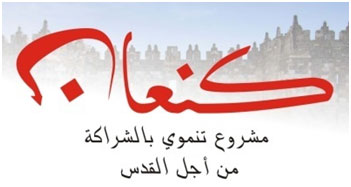2017-01-25
Israel Municipality demolishes commercial structures in the Jerusalem neighborhood of Wad Qaddum
The dozers of Israel Municipality in Jerusalem demolished on January 25, 2017 a commercial facility that is used as "stone slaps gallery" in Wad Qaddum neighborhood on the claim of it being built without a proper licensepermit.
The structure is owned by Khaled Mohammad Nassar. The below table shows information about the families of Khaled's four brothers, who work with him in the structure: Noor, Belal, Fares, Firas Nassar. The facility benefits 17 individuals, including 9 children
Citizen Khaled told Land Research Center the following :
" The structure (150m2) is used for selling stone slaps and other bathroom appliances. It was built in 2010 by metal slaps.
All we wanted is to create a source of income; a business to live off of it. Thus, we built the structure without obtaining a license from the occupation's municipality because we know that the municipality never grants licenses for structures in this area"
He also added:
" In 2011, employees from the occupation's municipality arrived at the location and photographed the structure without delivering us any order.
Today, a force from Israel Police accompanied by a dozer broke into the structure and demolished it without allowing us to evacuate any of the interior. The demolition lasted until 10:00 a.m."
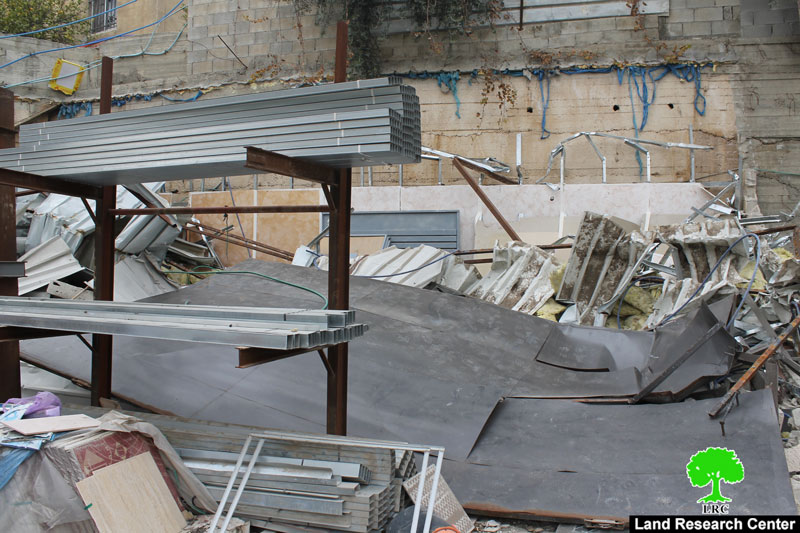
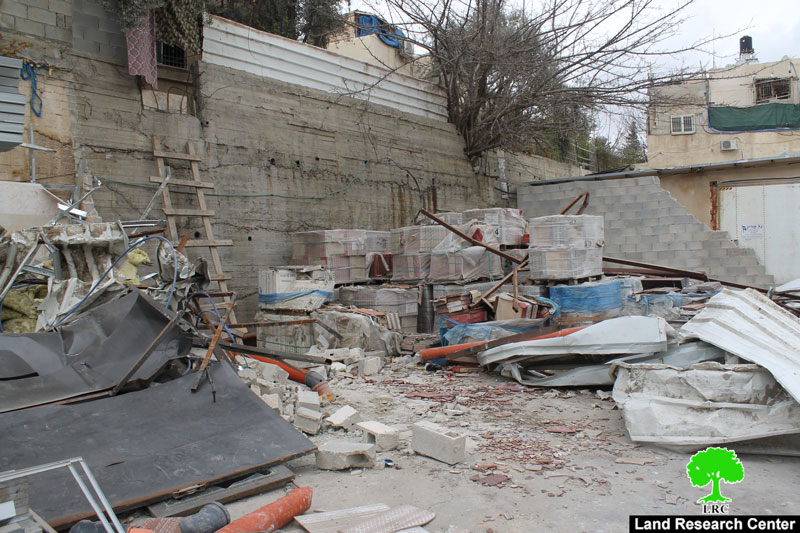
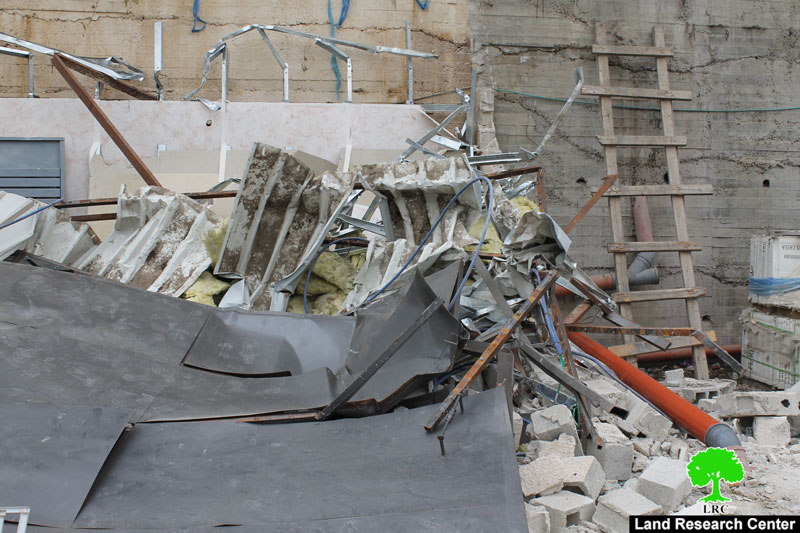
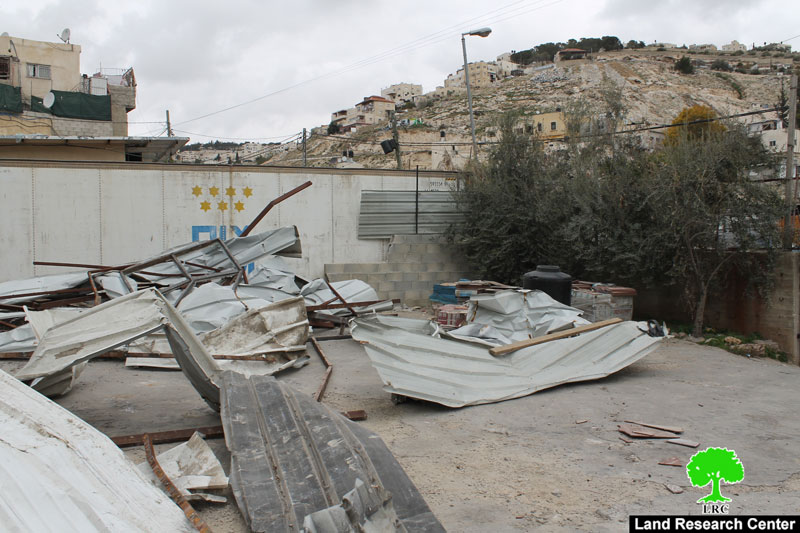
Land Research Center LRC sees that demolitions contradict with all the International conventions and Humanitarian laws including:
Article 17 of the (1948) Universal Declaration of Human Rights stating: “Everyone has the right to own property alone as well as in association with others. No one shall be arbitrarily deprived of his property.”
Section ‹G› of article 23 of the (1907) The Hague Conventions asserting: “In addition to the prohibitions provided by special Conventions, it is especially forbidden to destroy or seize the enemy's property, unless such destruction or seizure be imperatively demanded by the necessities of war.”
Article 53 of the Geneva Fourth Convention (1948) declaring: “Any destruction by the Occupying Power of real or personal property belonging individually or collectively to private persons, or to the State, or to other public authorities, or to social or cooperative organizations, is prohibited, except where such destruction is rendered absolutely necessary by military operations.”
Section 1, Article 11 of the International Covenant on Economic, Social and Cultural Rights (1966): “The States Parties to the present Covenant recognize the right of everyone to an adequate standard of living for himself and his family, including adequate food, clothing and housing, and to the continuous improvement of living conditions.
This case study is part of Kan'aan Project
